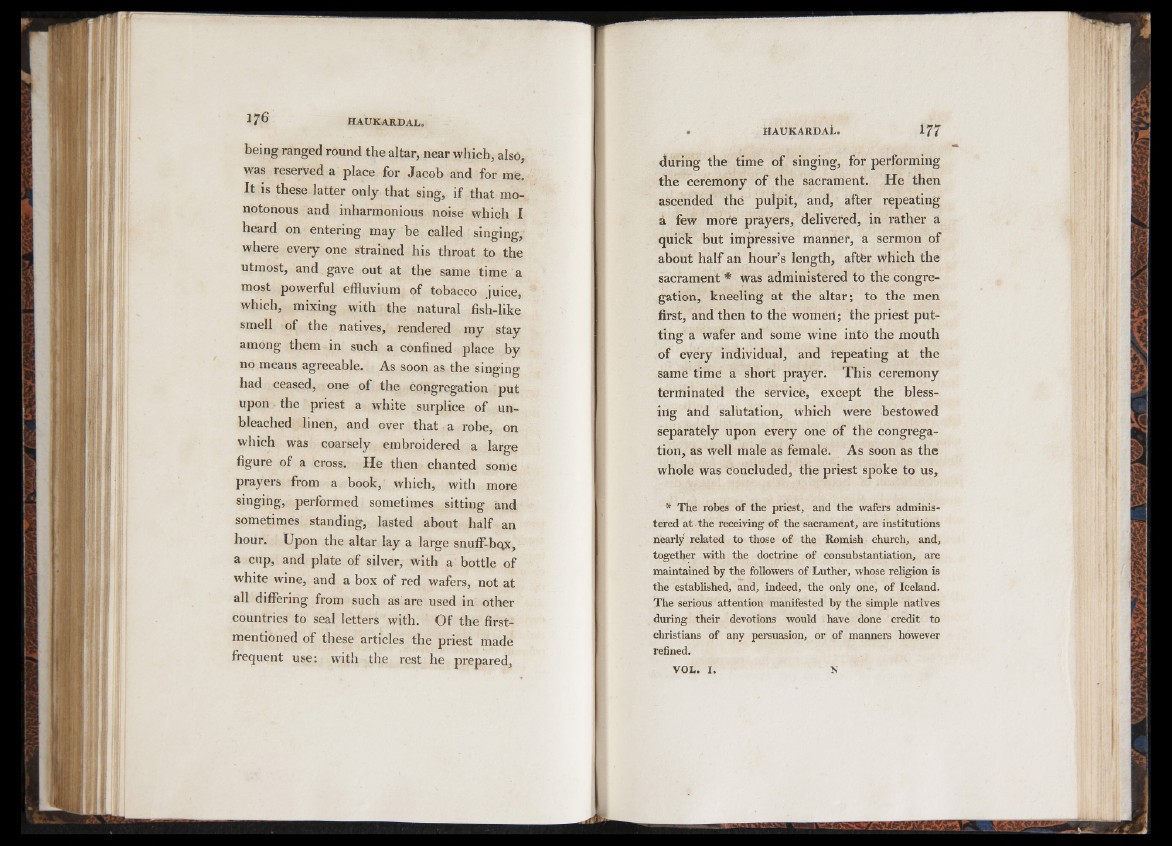
being ranged round the altar, near which, also,
was reserved a place for Jacob and for me.
It is these latter only that sing, if that monotonous
and inharmonious noise which I
heard on entering may be called singing,
where every one strained his throat to the
utmost, and gave out at the same time a
most powerful effluvium of tobacco juice,
which, mixing with the natural fish-like
smell of the natives, rendered my stay
among them in such a confined place by
no means agreeable. As soon as the singing
had ceased, one of the congregation put
upon the priest a white surplice of unbleached
linen, and over that a robe, on
which was coarsely embroidered a large
figure of a cross. He then chanted some
prayers from a book, which, with more
singing, performed sometimes sitting and
sometimes standing, lasted about half an
hour. Upon the altar lay a large snuff-bqx,
a cup, and plate of silver, with a bottle of
white wine, and a box of red wafers, not at
all differing from such as are used in other
countries to seal letters with. Of the first-
mentioned of these articles the priest made
frequent use: with the rest he prepared.
Ha u k a r d a L.
during the time of singing, for performing
the ceremony of the sacrament. He then
ascended thé pulpit, and, after repeating
à few mote prayers, delivered, in rather a
quick but impressive mannei", a sermon of
about half an hour’s length, aftèr which the
sacrament * was administered to the congregation,
kneeling at the altar; to the men
first, and then to the womert ; the priest putting
a wafer and some wine into the mouth
of every individual, and repeating at the
same time a short prayer. This ceremony
terminated the service, except the blessing
and salutation, which were bestowed
separately upon every one of the congregation,
as well male as female. As soon as the
whole was concluded, the priest spoke to us,
* The robes of the priest, and the wafers administered
at the receiving of the sacrament, are institutions
nearly related to those of the Romish church, and,
together with the doctrine of consubstantiation, are
maintained by the followers of Luthèr, whose religion is
the established, and, indeed, the only one, of Iceland.
The serious attention manifested by the simple natives
during their devotions would have done credit to
Christians of any persuasion, or of manners however
refined.
VOL. I . N